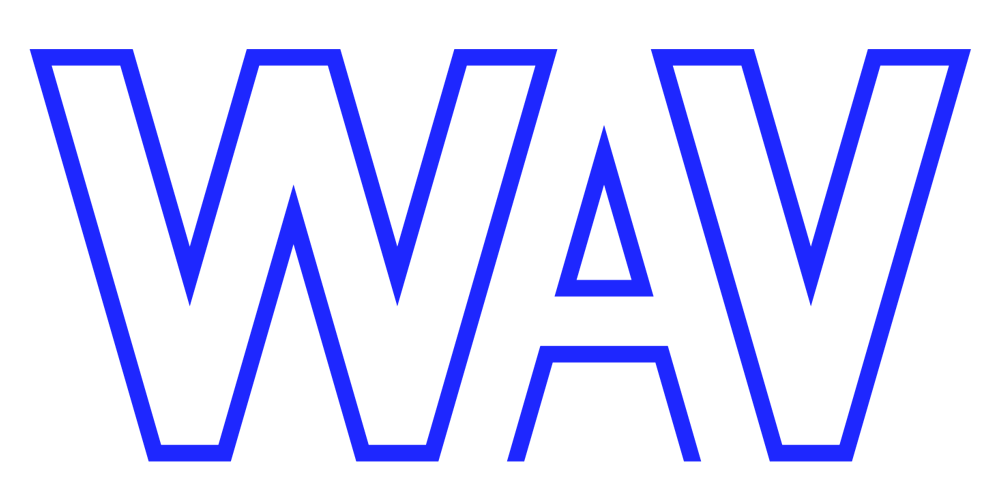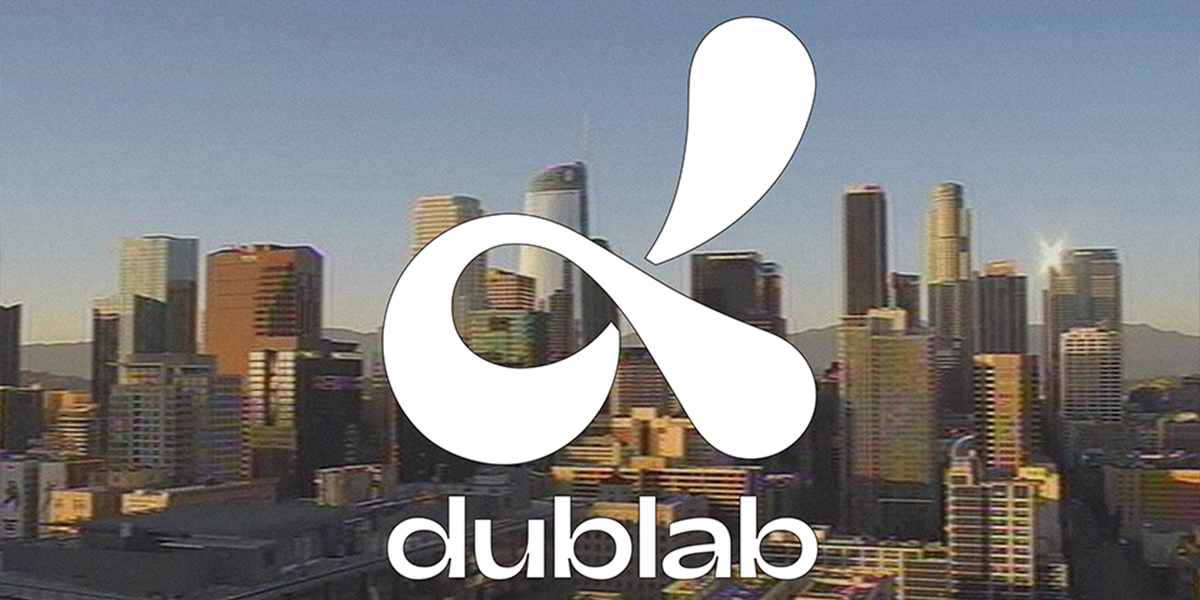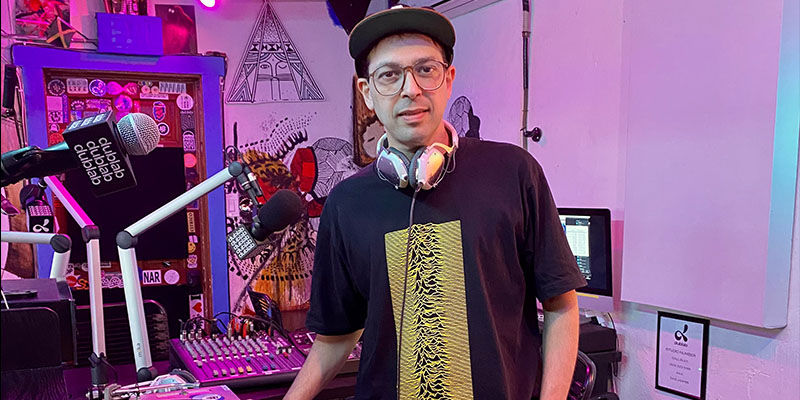For our 3rd anniversary we talked to Alejandro Cohen, executive director at Dublab LA. One of the first online radio stations worldwide.
WAV: ‘Hi Alejandro, I was trying to make a short bio from you but I quickly realised it could be a challenge :). Looks like you were involved in so much interesting stuff that I prefer to dive into some of those moments via this interview. You’re the executive director of Dublab in Los Angeles. How and when did it started & how is Dublab different today with let’s say 5 or 10 years ago.’
AC: “Dublab started in 1999 as a product and response to the lack of public access to FM licenses and the first internet bubble. In those days many events that were happening made it possible that a group of people that were coming from USC, KXLU, and other places in the community would think of the idea of streaming audio on the internet as a way to resemble college radio. It didn’t stop there, since those days, which I consider the wild west of online radio, the possibilities were open to whatever we could dream online radio could be. That spirit helped shape dublab into what it is today. Although the times are more complex and online radio went on to become a legitimate form of media, for us we continue to take it as medium where you can define what you do in your own terms.”
WAV: ‘Can you describe how a regular day for you looks like at the office?’
AC: ‘If it’s a Monday, usually clean the studio from the weekend shows. All other days are busy with accounting, fundraising, programming and developing special projects. It’s busy, I’ll tell you that. There are constant interruptions happening all the time, from DJs, musicians, and just the dozens of people that pass through the studio, but all of them are welcomed. It’s always good to talk, catch up and generate new ideas from those interactions.’
WAV: ‘Dublab radio was one of the first online radio stations. Today it’s a different situation with hundreds of platforms worldwide. How do you look at it and do you see a lot of differences between the stations?’
AC: ‘Yes, you are right, dublab was there in the early days along with other stations such as Beta Lounge in SF, who were close friends of ours. Today I see stations popping up everywhere, and that’s great, but I’m only happy to see a new station, when there is a true commitment and dedication to do it right. Radio is about repetition, how can you sustainably create original programming on a day to day basis without burning out. If you are going to have an mp3 jukebox or some algorithm named “radio”, please don’t, you are only creating more noise for us to cut through. Radio to me is community building through audio broadcast. You can rely on other tools of the day such as social media to enhance the experience but don’t let those tools define you.’
WAV: ‘One of the biggest challenges of an online radio station is the funding & to make a bit of profit. How did you manage to stay relevant & financially healthy the past 22 years.’
AC: ‘Funding is always a challenge, yes, and it took dublab over 10 years to start seeing funding in a way you can rely on. You have to have the trust of your community and listeners to support you and that takes years. When people see true and honest efforts to serve the community, then they will support you in return. That’s for a non-profit station like dublab. For a private station, you just get money from a company to pay for everything or some mystery funding that covers your basis. That tends to be more reliable and allows you to focus on programming (and many times really good programming) however the existence of the station greatly depends on those funds.
As for relevancy, I’m not sure, we do our thing and people seem to like it, but we don’t look for hype or recognition, we simply are a dedicated group of people. The rest comes and goes, sometimes you are recognized for what you do and sometimes you are not and that’s okay. You just have to keep going.’
WAV: ‘For me one of the nice things on Dublab is that you guys are also socially active. You’re trying to raise awareness for black live matters, against police brutality or for gender equality. Do you think that online radio can play an important role in this? ‘
AC: ‘Yes, we are active and we get out there and out of the comfort of our studio. Dublab and other online radio station can be catalysts for change and/or play a role in bringing this issues to the forefront. I think by embracing these issues in an ongoing matter can be useful but also you can run into the risk of using the messaging to server yourself instead of the intended cause. Real change comes from a commitment that is not so public and more internal, day to day actions that involve financial support, writing to your representatives and volunteering on a regular basis is more important than putting nice sounding messages out there that ultimately numb the listeners and becomes another set of initials that only make you look good. The role you can play should mostly done for the sake of doing it and not for the sake of showing it.’
WAV: For the people who never listened to Dublab before, can you share a few recommendations or Dublab hosts / shows to start with? When I used to come home after work on Friday evening, I enjoyed listening to ‘Things of Life’ with Dirty Dave, Daddy Differently & Suzanne Kraft. 🙂 In LA it was kind of a breakfast show and for me the evening just started.
AC:’ Oh, that’s so funny, yes, to me TOL is the start of Friday! We have such vast archives that all I can say is to tune in and explore, but yes, TOL is a good start :).’
WAV: ‘Dublab is based in LA. What’s the best thing about Los Angeles for you?’
AC: ‘Los Angeles is a city with a spirit of collaboration, open to new ideas and always willing to try something new. In my opinion, the creative process of the city comes from a very hands on, practical and utilitarian place. From there we build these ideas into what they really mean, or find the meaning of the afterwards, but is a city that creates and learns by doing and giving a shot to the most absurd of the propositions out there. For people in this city anything can be accomplished with a trip to the hardware store, some 2x4s and some dry wall!!!’
WAV: ‘You also compose music for TV shows & documentaries and you released records via projects like Pharaohs (ESP Institute), just to name one. What are you currently up to? ‘
AC: ‘Yes, that’s correct, despite running the station, I always feel being a musician comes first. That is an important thing to keep on doing as my work as a musician or music producer allows me to better understand dublab and the community I serve. I’ve been playing in bands since 1991, so by now is something I just do. Back in the late 90s/early 2000s I was in the band Languis, then Psychic Powers and then Pharaohs. Currently I put out music under Café Ale, and have a project called Sound Texture that is exactly what it sounds like. You can hear it on all streaming services. I also wrote for a number of PBS documentaries, Sesame Street and other programs, although these days is hard to fully dedicate to that. The day only has 24 hours!’
WAV: ‘Let’s talk a bit about the mix that we are broadcasting in our 3 years anniversary schedule. What’s the vibe gonna be like and can you share a few tracks or favourites in it?’
AC: ‘This mix is a selection of rare and obscure tracks from my collection, more on the dance and rare groove vibe. There’s a cover in there of DJ Bravo’s “Difacil Rap” that I really love.’
WAV: ‘To finish the interview we always want to ask a favourite Belgian track. Shoot ! 🙂
AC: ‘Anything by Front 242!!! Always…’
WAV: Thank you very much.
[Interview by Fred Nasen (WAV)]



